- Home
- Kelley Armstrong
Portents Page 3
Portents Read online
Page 3
“You can’t,” Hannah cut in. “Not unless you can talk to ghosts. I’m not sure anyone can talk to ghosts. If there are ghosts.” She turned to Rose, as if she was the older, wiser girl.
“There are,” Rose said. “Those with the sight sometimes say they see them. Others can, too. But most times when a person says they’re seeing ghosts it’s their imagination. Even if you can talk to them I’m not sure why you’d want to.”
Hannah nodded, and his gaze shot from one girl to the other, unable to believe they were talking about such things seriously. Kids at school would call them babies for believing in magic. His parents would call it ungodly. His grandmother would probably call them changelings.
“About the cat. The . . . matagot.” He stumbled over the foreign word.
“We don’t know if it is one,” Rose said. “Hannah says his mother thinks he’s strange. She still loves him, though.”
“As she should,” Hannah said. “There’s nothing wrong with strange.”
Rose nodded. “But we’re worried.”
“Very worried.” Hannah knelt beside the box where the mother cat was licking the black kitten’s head. “Momma Cat is even more worried. Aren’t you?”
The cat mrrowed deep in its throat and looked up at Hannah. Then she nosed the kitten away from her side.
“I think she’s going to drive it off,” Bobby said. “They do that sometimes. With the weak, the ones that are different.”
Hannah shook her head, curls bouncing. “No, she’s asking me to take it.”
“You should,” Rose said. “Your parents would let you.”
“I know. I just hate taking a kitten from its mother.”
The cat nosed the kitten again and meowed. Hannah nodded, said, “I understand,” and very gently lifted the little black ball in both hands. The cat meowed again, but it didn’t sound like protest. She gave the black kitten one last look, then shifted, letting its siblings fill the empty space against her belly.
“You’ll need to feed it with a dropper,” Rose said. “We can get books at the library and talk to the vetrinarian when she comes back through town.”
Hannah nodded. “I’ll take him home first and ask Mom to watch him.”
They got to the end of the walkway before they seemed to realize Bobby wasn’t following. They turned.
“Do you want to come with us?” Hannah asked.
He did, but he wanted the milkshake with Mrs. Yates too, and if the girls were busy, he’d get the old woman all to himself.
“I told Mrs. Yates I’d meet her at the diner,” he said, not mentioning the milkshakes.
Rose nodded. “Then you should do that. We’ll see you later.”
“Is your family coming for Samhain?” Hannah asked.
“I think we are.”
Hannah smiled. “I hope so.”
“Make sure you do,” Rose said. “It’s more fun when you’re here.”
He couldn’t tell if she meant it or was just being nice, but it felt good to hear her say it and even better when Hannah nodded enthusiastically. He said he’d be back for Samhain, and went to find Mrs. Yates.
On the way home, his grandmother asked about his visit with Mrs. Yates. She was trying to get him to admit that he’d tattled on her. Even if he had, he certainly wouldn’t admit it. His grandmother might say he was too smart for his age, but sometimes she acted as if he was dumber than the Gnat. Finally, she pulled off the highway, turned in her seat and said, “Did Mrs. Yates ask how things were at home?”
“Yes.”
“And what did you tell her?”
“That they were fine.”
She put her hand on his shoulder. It was the first time since he’d admitted to the dreams that she’d voluntarily touched him, except to pinch or slap.
“You know it’s a sin to lie, Bobby.”
“I do.”
“Then tell me the truth. Did you say more?”
He hesitated. Nibbled his lip. Then said, “I told her Natalie was being a pest.”
Her mouth pressed into a thin line. “That’s not what I mean.”
“But you asked—”
“Did you say anything more?”
“No.” He hid his smile. “Not a word.”
A month later, as Samhain drew near, he mentioned it over dinner.
“We aren’t going,” his mother said quietly.
“What?”
“Gran feels Cainsville isn’t a good influence on you right now.”
He shot a look at his grandmother, who returned a small, smug smile and ate another forkful of peas.
“Remember what happened when you visited last month?” his father said. “You came home and you were quite a little terror.”
That was a lie. His grandmother had punished him twice as much after they got back, making up twice as many stories about him misbehaving. He’d thought she was just angry because her plan—whatever it had been—failed.
Gran’s smile widened, her false teeth shining as she watched him.
“I don’t care,” the Gnat said. “I hate Cainsville. It’s boring.”
His grandmother patted her head. “I agree.”
He shot to his feet.
“Bobby . . .” his father said.
“May I be excused?” he asked.
His father sighed. “If you’re done.”
Bobby walked to his room, trying very hard not to run in and slam the door. Once he got there, he fell facedown on his bed. The door clicked open. His grandmother walked in.
“You’re a very stupid little beast,” she said. “You should have told the elders. They’d take you back.”
He flipped over to look at her.
“If you’re being mistreated, they’ll take you back,” she said. “But you didn’t tell them, so now we have to wait for them to come to us. I’ll make sure they come to us.”
His grandmother soon discovered another flaw in her plan. Two, actually. First, that whoever she thought would “come for him” was not coming, no matter how harsh her punishments. Second, that his parents’ blindness had limits.
As the months of abuse had passed, he’d come to accept that his parents weren’t really as oblivious as they pretended. Nor were they as enlightened as they thought. Even if they’d never admit it, there seemed to be a part of them that thought his grandmother’s wild accusation was true. Or perhaps not that they actually believed him a changeling faerie child, but that they thought there was something wrong—terribly wrong—with him. He was different. Odd. Too distant and too cold. His sister hated him. Other children avoided him. Like animals, they sensed something was off and steered clear. Perhaps, then, the beatings would help. Not that they’d ever admit such a thing—heavens no, they were modern parents—but if he didn’t complain, then perhaps neither should they.
They did have limits, though. When the sore spots became bruises and then welts, they objected. What would the neighbors think? Or, worse, his teachers, who might call children’s services. Hadn’t the family been through enough? Gran could punish him if he misbehaved, but she must use a lighter hand.
That did not solve the problem, but it opened a door. A possibility. That door cracked open a little more when his mother received a call at work from one of the elders, who wondered why they hadn’t seen the Sheehan family in so long. Was everything all right? His mother said it was, but when she reported the call at home, over dinner, his grandmother fairly gnashed her teeth. His mother noticed and asked what was wrong, and Gran said nothing but still, his mother had noticed. He tucked that away and remembered it.
Christmas came, and he waited until he was alone in the house with his mother, and asked if they’d visit family in Cainsville. His mother wavered. And he was ready.
“Your grandmother doesn’t think you’re ready,” she said as they sat in front of the television, wrapping gifts.
“I’ve been much better,” he said.
“I’m not sure that you have.”
He stretch
ed tape over a seam. “I don’t think I’m as bad as Gran says. I think she’s still mad at me because we had to move.”
A soft sigh, but his mother said nothing. He finished his package and took another.
“I think she might exaggerate sometimes,” he said quietly. “I think Natalie might, too. I get the feeling they don’t like me very much.”
Of course his mother had to protest that, but her protests were muted, as if she couldn’t work up true conviction.
“If you don’t see me misbehaving, maybe I’m not,” he said. “I do, sometimes. All kids do. But maybe it’s not quite as much as Gran and Natalie say.”
He worded it all so carefully. Not blaming anyone. Only giving his opinion, as a child. His mother went silent, wrapping her gift while nibbling her lower lip, the same way he did when he was thinking.
“I have friends in Cainsville,” he said. “Little girls who like playing with me. They’re very nice girls.”
“Hannah and Rose,” his mother said. “I like Hannah. Rose is . . .”
“Different,” he said. “Like me. But she’s not mean and she doesn’t misbehave. She hardly ever gets in trouble. Even less than Hannah.”
“Rose is a very serious girl,” she said. “Like you. I can see why you’d like her.”
“I do. I miss them. I promise if we go to Cainsville, I’ll be better than ever.” He clipped off a piece of ribbon. “And your family is there. You want to see them. Gran never liked Cainsville, so she’s happy if we don’t go.”
“That’s true,” his mother murmured, and with that, he knew he’d won an ally in his fight to return to Cainsville. But as he soon learned, it hardly mattered at all. His mother had a job, just like a man, but she didn’t make a lot of money, and his father always joked that it was more a hobby than an occupation, which made his mother angry. That meant, though, that his father was the head of the house. As it should be, Gran would say, and she could, because there was only one person his father always listened to—his own mother, Gran. If Bobby’s grandmother said no to Cainsville, then they would not be going to Cainsville and that was that.
Gran said no to Cainsville.
No to Cainsville for the holidays. No to Cainsville for Candlemas. No to Cainsville for May Day.
It was the last that broke him. May Day was his favorite holiday, with the gargoyle hunt contest, which he was almost certain to win this year, according to Mrs. Yates.
He would go to Cainsville for May Day. All he had to do was eliminate the obstacle.
Everyone always told him how smart he was. Part of that was his memory. He heard things, and if he thought they might be important, he filed the information away as neatly as his father filed papers in his basement office. A year ago, his grandmother had admitted to feeding him one of her heart medicine pills. Father Joseph had been horrified—digitalis was foxglove, which was poison. Bobby had mentally filed those details and now, when he needed it, he tugged them out and set off for the library, where he read everything he found on the subject. Then he began stealing pills from Gran’s bottle, one every third day.
After two weeks, he had enough pills. He ground them up and put them in her dinner. And she died. There were a few steps in between—the heart attack, the ambulance, the hospital bed, his parents and the Gnat sobbing and praying—but in the end, he got what he wanted. Gran died and the obstacle was removed, and with it, he got an unexpected gift, one that made him wish he’d taken this step months ago, because as his grandmother breathed her last and he stood beside her bed, watching, he finally heard the screams of dragons.
It started slow, quiet even. Like a humming deep in his skull. Then it grew and the humming became a strange vibrating cry, somewhere between a roar and a scream. Finally, when it crescendoed, he couldn’t even have said what it sounded like. It was all sounds at once, so loud that he burst out in a sob, hands going to his ears as he doubled over.
His mother caught him and held him and rubbed his back and said it would be okay, it would all be okay, Gran was in a better place now. Yet the dragons kept screaming until he pushed her aside and ran from the hospital room. He ran and he ran until he was out some back door, in a tiny yard. Then he collapsed, hugging his knees as he listened to the dragons.
That’s what he did—he listened. He didn’t try to block them, to stop them. This was what he’d dreamed of and now he had it, and it was horrible and terrible and incredible all at once. He hunkered down there, committing them to memory as methodically as he had the dreams of golden palaces and endless meadows. Finally, when the screams faded, he went back inside, snuffling and gasping for breath, his face streaked with tears. His parents found him like that, grieving they thought, and it was what they wanted to see, proof that he was just a normal little boy, and they were, in their own grief, happy.
He waited until three days after the funeral to broach the subject of Cainsville. He would have liked to have waited longer, but it was already April 27, and he’d given great thought to the exact timing—how late could he wait before it was too late to plan a May Day trip? April 27 seemed right.
After he’d gone to bed, he slipped back out and found his parents in the living room, reading. He stood between them and cleared his throat.
“Yes, Bobby?” his mother said, lowering her book.
“I’ve been thinking,” he said. “Natalie’s so upset about Gran. We all are, of course, but Natalie most of all.”
His mother sighed. “I know.”
“So I was thinking of ways to cheer her up.”
As he expected, this was about the best thing he could have said. His mother’s eyes lit up and his father lowered his newspaper.
“It’s May Day this weekend,” Bobby said. “I know Natalie thinks Cainsville is boring, but she always liked May Day.”
“That’s true.” His mother snuck a glance at his father. “Last year, she asked if we were going before Bobby did.”
“I thought we might go,” he said. “For Natalie.”
His father smiled and reached to rumple Bobby’s hair. “That’s a fine idea, son. I believe we will.”
Rose knew what he’d done. He saw it in her eyes as he walked over to her and Hannah, cutting flowers before the May Day festivities began. Rose saw him coming and straightened fast, fixing him with those pale blue eyes. Then she laid her hand on Hannah’s shoulder, as if ready to tug her friend away.
Hannah looked up at Rose’s touch. She saw him and grinned, a bright sunshine grin, as she rose and brushed off the bare knees under her short, flowered dress. Rose kept hold of her friend’s shoulder, though, and squeezed. Hannah hesitated.
He stopped short. Then he glanced to the side, pretending he’d heard someone call his name, an excuse to walk away. He headed toward one of the elders, setting out pies. The pie table was close enough for him to hear the girls.
Rose spoke first. “I had a dream about Bobby,” she whispered.
Hannah giggled. “He is kind of cute.”
“Not like that.”
Hannah went serious. “You mean one of those dreams?”
“I don’t know. There were dragons.”
He stiffened and stood there, blueberry pie in hand, straining to listen to the girls behind him.
“Dragons?” Hannah said.
“He was hunting them.”
“I bet they were gargoyles. He’s really good at finding them. He has twice as many as I do, and he doesn’t even live here.”
“He killed one,” Rose said.
“A gargoyle?”
“A dragon. An old one. She was blocking his way, and he fed her foxglove flowers, and she started to scream.”
His stomach twisted so suddenly that he doubled over, the elder grabbing his arm to steady him, asking if he was all right, and he said yes, quickly, pushing her off as politely as he could and taking another pie from the box as he struggled to listen.
“That’s one freaky dream, Rosie,” Hannah was saying.
“I know.”
“I think it just means he’s going to win the gargoyle contest.”
“Probably, but it felt like . . .” Rose drifted off. “No, I’m being dumb.”
“You’re never dumb. You just think too much sometimes.”
Rose chuckled. “My mom says the same thing.”
“Because she’s smart, like you. Now, let’s go ask if Bobby wants to come see Mattie.”
The tap-tap of fancy shoes. Then a finger poked his back.
“Bobby?”
He turned to Hannah, smiling at him.
“We’re glad you came,” she said. “We missed you.”
He nodded.
“It’s not time for the festival yet. Do you want to come see Mattie?”
“That’s what she named the kitten,” Rose said, walking up behind her friend. “Short for matagot.”
“No, short for Matthew.”
Rose rolled her eyes. “Whatever you say.”
Hannah pretended to swat her, then put her arm through Bobby’s. As she did, Rose tensed and rocked forward, like she wanted to pull Hannah away. She stopped herself, but fixed him with that strange look. Like she knew what he’d done. With that look, he knew Rose had a power, like Hannah. And him? He had nothing except taunting dreams of castles and meadows, and the screams of dragons, fading so fast he could barely remember the sound at all.
“Smile, Bobby,” Hannah said, squeezing his arm. “It’s May Day, and we’re going to have fun.” She grinned. “We’ll always have fun together.”
He won the gargoyle hunt that year. The next year, too. They went to Cainsville for all the festivals and sometimes he and his mother just went to visit. Life was good, and not just because Gran was dead and he’d gotten Cainsville back, but because he’d learned a valuable lesson. He did not have magic powers. He would likely never have them. But he did have a power inside him—the screams of dragons.
He would admit that when he killed his grandmother, he thought he’d suffer for it. He’d be caught and even if he wasn’t, it would be as Father Joseph preached—he would be forever damned in the prison of his own mind, tormented by his sins. Father Joseph had lied. Or, more likely, he simply didn’t understand boys like Bobby.

 The Calling
The Calling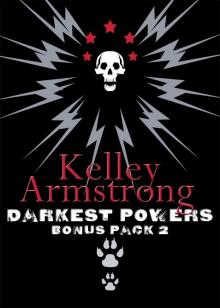 Darkest Powers Bonus Pack
Darkest Powers Bonus Pack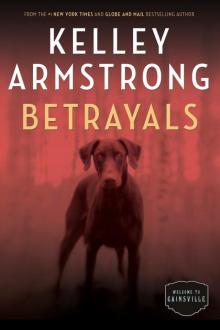 Betrayals
Betrayals Sea of Shadows
Sea of Shadows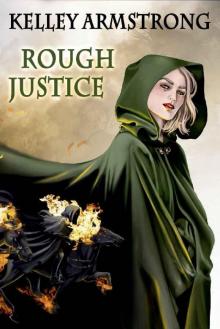 Rough Justice
Rough Justice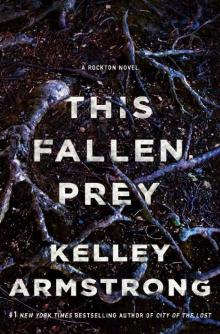 This Fallen Prey
This Fallen Prey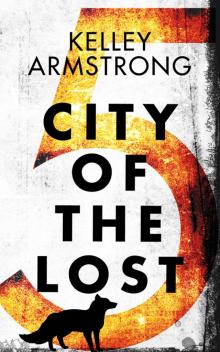 City of the Lost: Part Five
City of the Lost: Part Five Perfect Victim
Perfect Victim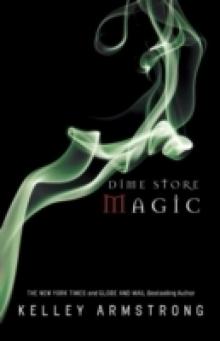 Dime Store Magic
Dime Store Magic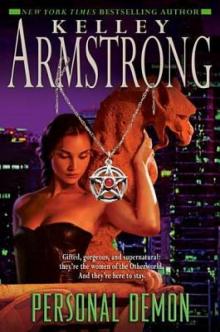 Personal Demon
Personal Demon Haunted
Haunted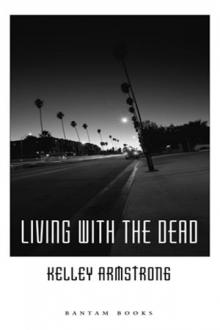 Living With the Dead
Living With the Dead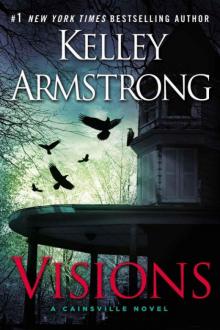 Visions
Visions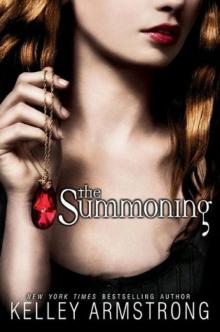 The Summoning
The Summoning Broken
Broken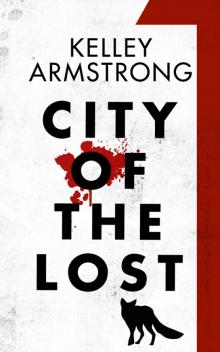 City of the Lost: Part One
City of the Lost: Part One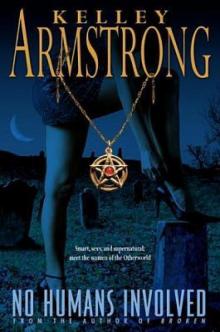 No Humans Involved
No Humans Involved The Awakening
The Awakening The Reckoning
The Reckoning The Gathering
The Gathering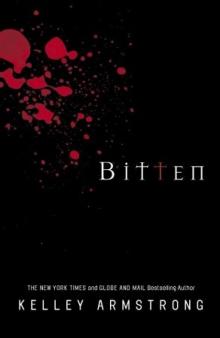 Bitten
Bitten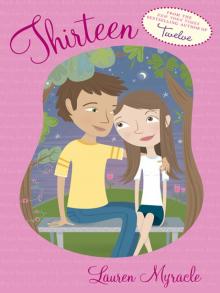 Thirteen
Thirteen Gifted
Gifted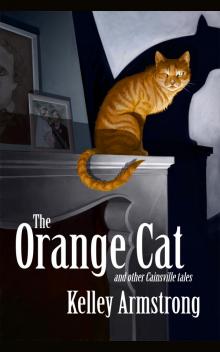 The Orange Cat and Other Cainsville Tales
The Orange Cat and Other Cainsville Tales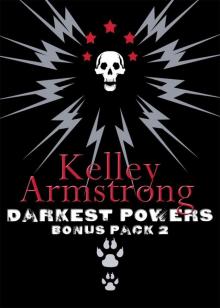 Darkest Powers Bonus Pack 2
Darkest Powers Bonus Pack 2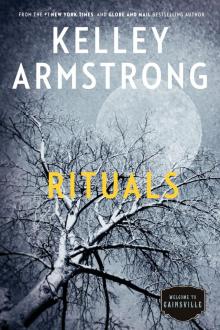 Rituals
Rituals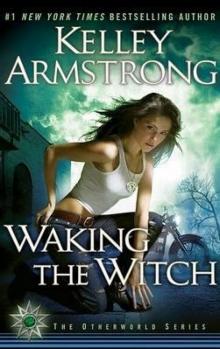 Waking the Witch
Waking the Witch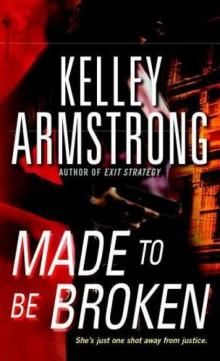 Made to Be Broken
Made to Be Broken Lost Souls
Lost Souls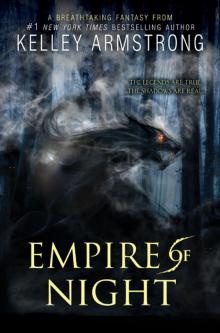 Empire of Night
Empire of Night Wild Justice
Wild Justice Double Play
Double Play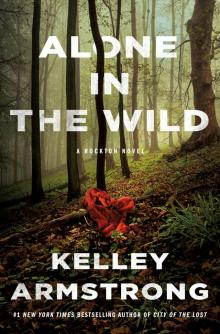 Alone in the Wild
Alone in the Wild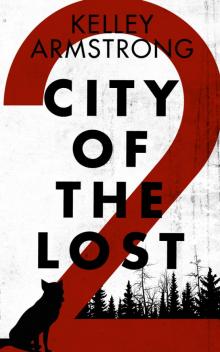 City of the Lost: Part Two
City of the Lost: Part Two A Stranger in Town
A Stranger in Town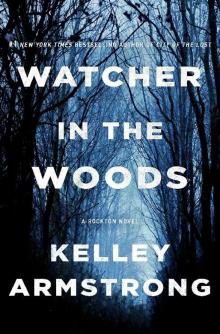 Watcher in the Woods: A Rockton Novel
Watcher in the Woods: A Rockton Novel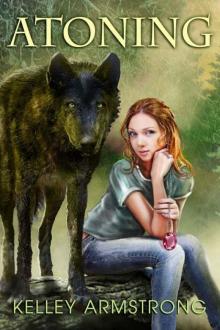 Atoning
Atoning Spellbound
Spellbound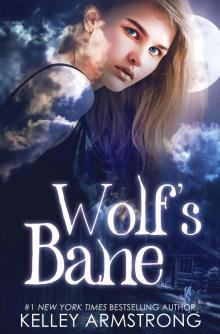 Wolf's Bane
Wolf's Bane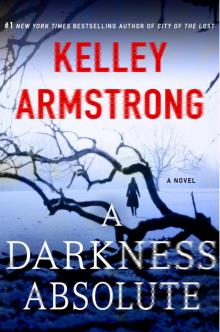 A Darkness Absolute
A Darkness Absolute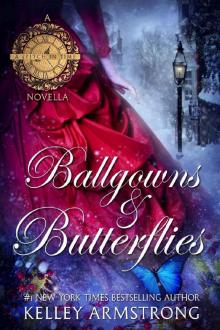 Ballgowns & Butterflies: A Stitch in Time Holiday Novella
Ballgowns & Butterflies: A Stitch in Time Holiday Novella Wherever She Goes
Wherever She Goes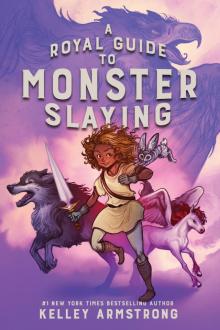 A Royal Guide to Monster Slaying
A Royal Guide to Monster Slaying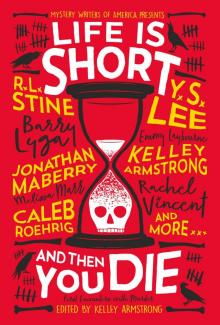 Life Is Short and Then You Die
Life Is Short and Then You Die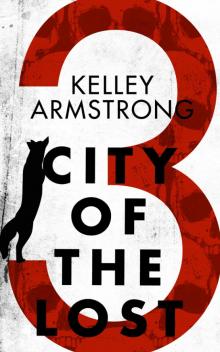 City of the Lost: Part Three
City of the Lost: Part Three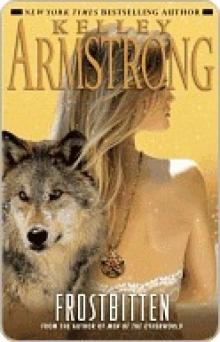 Frostbitten
Frostbitten A Stitch in Time
A Stitch in Time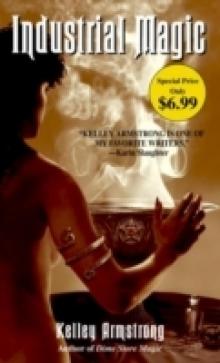 Industrial Magic
Industrial Magic Wherever She Goes (ARC)
Wherever She Goes (ARC)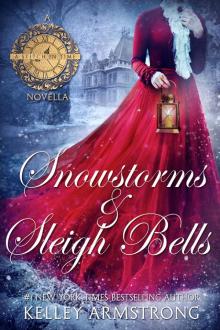 Snowstorms & Sleigh Bells: A Stitch in Time holiday novella
Snowstorms & Sleigh Bells: A Stitch in Time holiday novella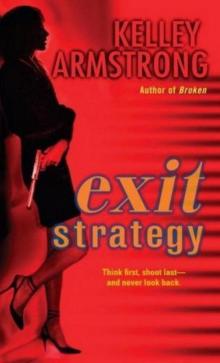 Exit Strategy
Exit Strategy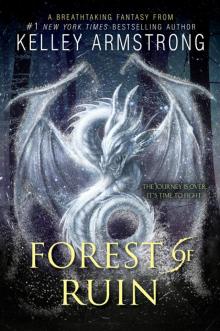 Forest of Ruin
Forest of Ruin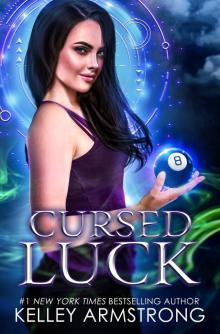 Cursed Luck, Book 1
Cursed Luck, Book 1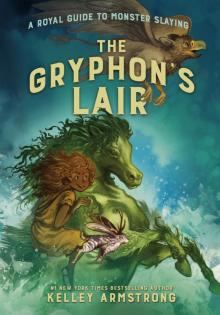 The Gryphon's Lair
The Gryphon's Lair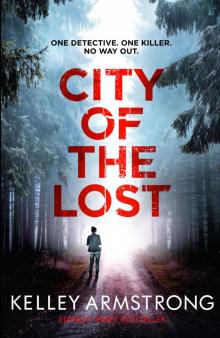 City of the Lost
City of the Lost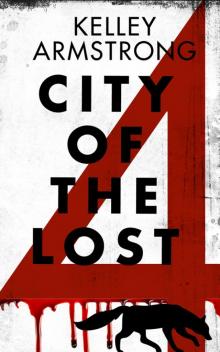 City of the Lost: Part Four
City of the Lost: Part Four Deceptions
Deceptions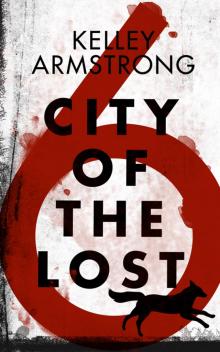 City of the Lost: Part Six
City of the Lost: Part Six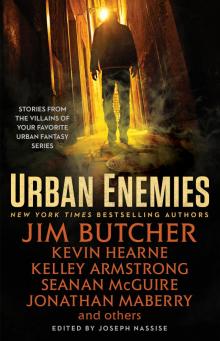 Urban Enemies
Urban Enemies Stolen
Stolen Every Step She Takes
Every Step She Takes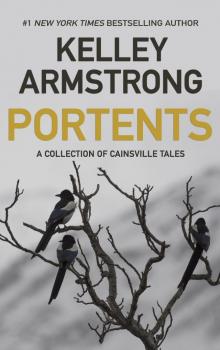 Portents
Portents Wolf's Curse
Wolf's Curse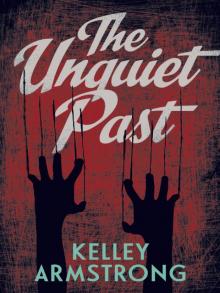 The Unquiet past
The Unquiet past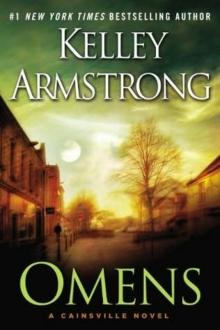 Omens ct-1
Omens ct-1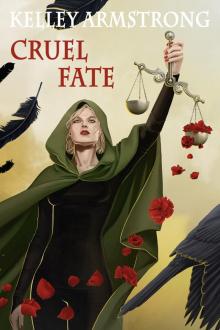 Cruel Fate
Cruel Fate The Calling dr-2
The Calling dr-2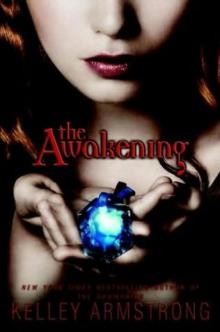 The Awakening dp-2
The Awakening dp-2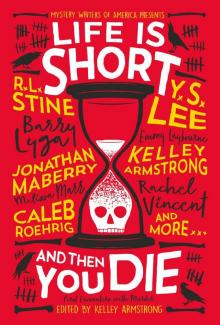 Life Is Short and Then You Die_First Encounters With Murder From Mystery Writers of America
Life Is Short and Then You Die_First Encounters With Murder From Mystery Writers of America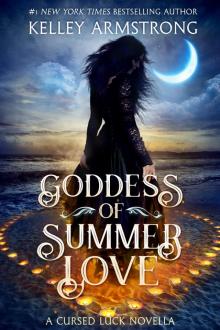 Goddess of Summer Love: a Cursed Luck novella
Goddess of Summer Love: a Cursed Luck novella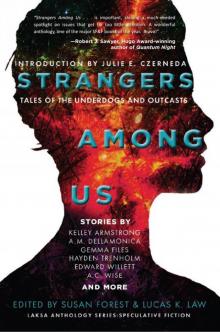 Strangers Among Us
Strangers Among Us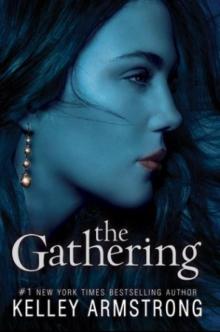 The Gathering dr-1
The Gathering dr-1 The Rising dr-3
The Rising dr-3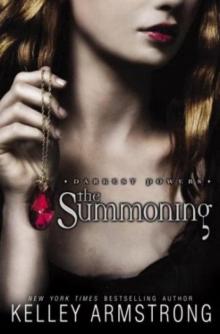 The Summoning dp-1
The Summoning dp-1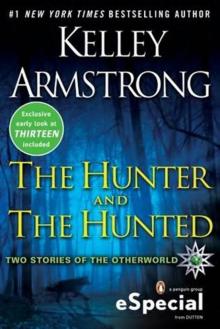 The Hunter And The Hunted
The Hunter And The Hunted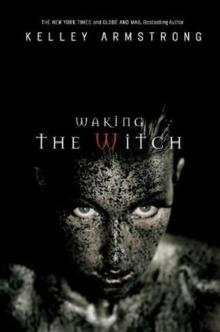 Waking the Witch woto-11
Waking the Witch woto-11